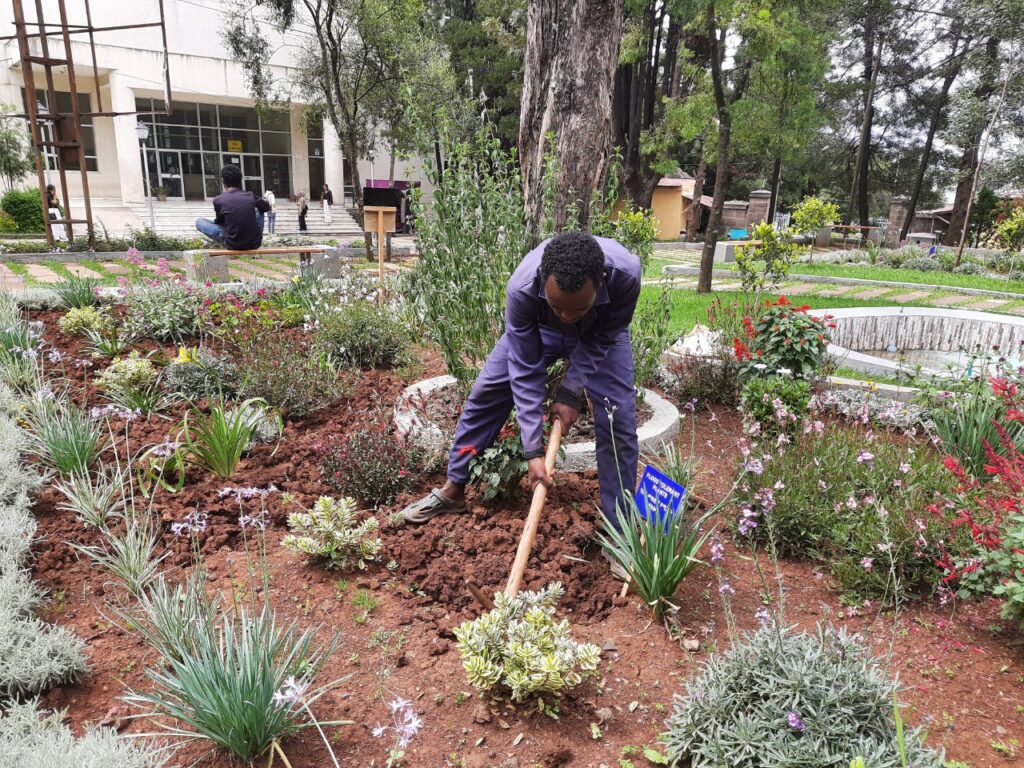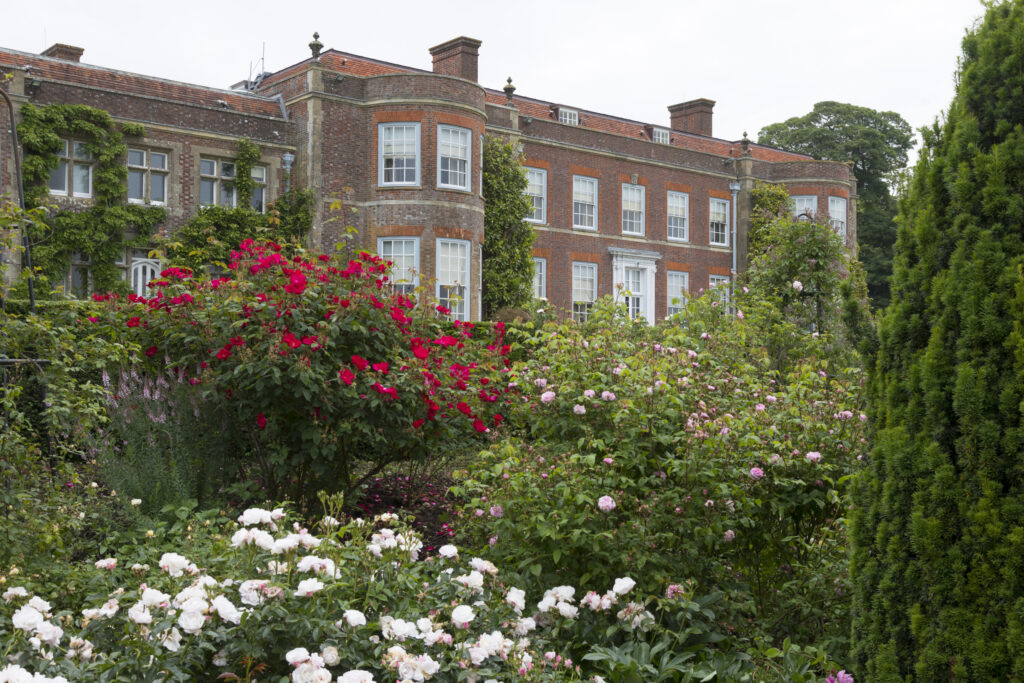From Addis Ababa to Hampshire: developing climate-resilient gardens
As part of the Withstanding Change project, National Trust teams at Hinton Ampner and Mottisfont in Hampshire have been working closely with Heritage Watch Ethiopia to learn about adapting their gardens to climate change.
Mottisfont is home to the renowned National Collection of pre-1900 roses, making it an ideal partner for Heritage Watch Ethiopia (HWE), who are restoring a historic rose garden on the campus of the University of Addis Ababa. Along with gardeners and experts from nearby Hinton Ampner (itself home to a notable rose garden), the Mottisfont team have been sharing knowledge and practical experiences with the HWE team, with knowledge travelling in both directions.

An arch in the Mottisfont rose garden in June. (c) National Trust Images/Clive Nichols.
Formerly part of the residence of Crown Prince Asfa Wossen, the Tsegereda (rose) garden needed a full programme of works to bring it back to its former glory and make it more resilient to the increasingly severe climate impacts that are being seen in Ethiopia. In particular, the garden needed to be able to cope both with extended periods of drought and with more intense bouts of rain. The site was therefore redesigned to incorporate drought-resilient planting schemes – privileging indigenous plants already adapted to a dry climate and incorporating techniques such as mulching – alongside a rain garden and new drainage that will deal with any excess water.

A member of the Heritage Watch Ethiopia team working on the Tsegereda garden in Addis Ababa. (c) Heritage Watch Ethiopia
The extremes of hot, dry weather and prolonged heavy rain seen in Ethiopia as a result of climate change are not all that different from conditions in Hampshire. The garden team at Mottisfont are facing increasing challenges in caring for the rare rose varieties in the walled garden – which of course was designed to provide a sheltered environment but is now seeing much higher temperatures than ever before, thanks to climate change. Some of the more sensitive roses will need to be moved to less exposed spots; they may also need to be propagated to ensure their future.

A summer display of roses in the garden at Hinton Ampner. (c) National Trust Images/John Miller.
Meanwhile at Hinton Ampner, managing the garden in wetter weather is proving to be a real issue. Many of the grass paths and lawned areas are becoming waterlogged; in areas of heavy footfall, they become so muddy the grass cannot recover. The garden team are adapting by closing off damaged areas where necessary, providing alternative routes through the garden and also creating new areas of interest to spread footfall out more evenly over the site.
Over the course of a series of online meetings, the National Trust and HWE teams have been able to learn from each other in all sorts of ways – from discussing composting methods and new types of fertilizer, through to interpreting garden spaces for visitors and programming outdoor events. These discussions have helped to inform the National Trust’s own approach to adapting gardens to climate change – doing our best to preserve the unique character of each garden space even when planting schemes have to change to respond to new climate conditions.

A red rose flourishing at the Tsegereda garden in Addis Ababa. (c) Heritage Watch Ethiopia.
In the autumn of 2024, two gardeners from Mottisfont and Hinton Ampner will be travelling out to Addis Ababa to get their hands dirty at the Tsegereda garden. They will be working alongside the HWE team and meeting with local stakeholders including horticultural societies and the University’s Climate Change Centre. They’ll bring all their learning back with them to share more widely with the National Trust’s community of gardeners. Watch this space or follow @intoheritage for more updates!
